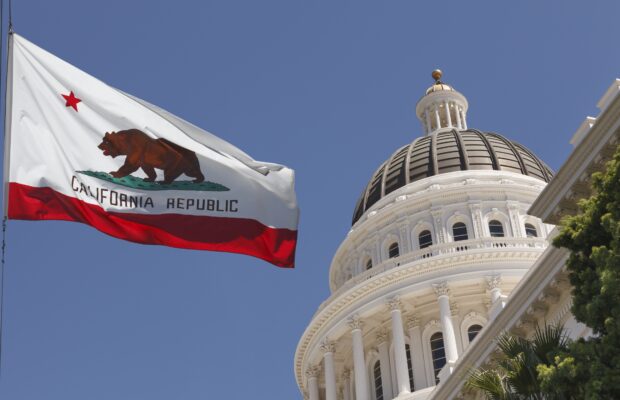In recent days, the federal government, the state of California, and many local governments have taken action to provide tenant and homeowner protections in response to the COVID-19 pandemic.
On March 18, President Trump announced a suspension of foreclosures and evictions by the Department of Housing and Urban Development through April 30. The moratorium will apply only to homeowners with mortgages insured by the Federal Housing Administration.
Also on March 18, the Federal Housing Finance Agency directed Fannie Mae and Freddie Mac to suspend foreclosures and evictions for at least 60 days.
At the state level, on March 16, 2020, California Governor Gavin Newsom issued Executive Order N-28-20 prohibiting rent hike evictions, authorizing local governments to implement further protections against evictions, delaying foreclosures by mortgage lenders, and monitoring customer service protections delivered by utility providers. Unless extended, the protections under the order are in effect until May 31, 2020 and are intended to address the challenges for many Californians to pay rent, mortgages, and utility bills as a result of the COVID-19 pandemic. A summary of protections included in the order is as follows:
- It is unlawful to evict any residential tenant through May 31, 2020 (as may be extended) and subsequently rent or offer to rent to another person at a rental price greater than the evicted tenant could be charged. Landlords may continue an eviction process that was lawfully initiated prior to March 4, 2020.
- Local governments may impose substantive limitations on residential or commercial evictions through May 31, 2020 (as may be extended) where the basis of the eviction is nonpayment of rent or a foreclosure, and the tenant or homeowner can demonstrate economic hardship caused by the COVID-19 pandemic.
- Public housing authorities are requested to extend deadlines for housing assistance recipients and applicants to deliver documents.
- Home and commercial mortgage lenders are requested to immediately place a moratorium on foreclosures and evictions that arise out of economic hardship caused by the COVID-19 pandemic.
- The California Public Utilities Commission (CPUC) is requested to monitor and report the customer service protections provided by utility providers for electric, gas, water, internet, landline telephone, cell phone service, and other critical utilities, in response to COVID-19.
The order contemplates that a quarantine or similar public health measure could also prohibit an eviction if it compels an individual to remain physically present in a particular residential property.
The order does not relieve a tenant from its obligation to pay rent, nor does it restrict a landlord’s ability to recover rent.
On March 17, 2020, the CPUC confirmed that, retroactive to March 4, 2020, utility companies under CPUC’s jurisdiction (including PG&E, AT&T and Comcast) will not be allowed to suspend service for customers who cannot pay their bills during the COVID-19 state of emergency.
Cities in California that have moved to impose temporary moratoriums on evictions include San Francisco, Oakland, San Jose, Los Angeles, Santa Monica, San Diego, Santa Barbara, South Pasadena, and Suisun.
- On March 13, San Francisco Mayor London Breed issued a 30-day moratorium on residential evictions related to financial impacts caused by the COVID-19 pandemic. Tenants will have up to six months after the end of the emergency declaration period to pay the total of their missed rent. Guidance for tenants and landlords, including tenant obligations to provide notice of inability to pay rent, can be viewed here.
- On March 14, Santa Monica issued a temporary moratorium on evictions for non-payment of rent by residential tenants financially impacted by COVID-19 during the period of local emergency. A landlord also cannot pursue a no-fault eviction during the period of local emergency unless necessary for the health and safety of tenants, neighbors, or the landlord. On March 18, Santa Monica added a moratorium on commercial tenant evictions through April 30, 2020.
- On March 15, Los Angeles Mayor Eric Garcetti issued a moratorium on residential evictions through March 31, 2020 where the tenant can demonstrate economic hardship caused by the COVID-19 pandemic. Tenants will have up to six months following the expiration of the local emergency period to repay any back due rent. The Mayor is considering a halt to commercial evictions as well.
- A proposed ordinance for a residential eviction moratorium in Oakland will be considered at the Oakland City Council’s next meeting on April 7.
- San Jose City Council is moving forward with a temporary ban on COVID-19-related residential evictions, which is expected to receive final approval in the next week. Council members will consider adding small businesses under commercial leases to the moratorium.
- San Diego city leaders voted on March 17 to draft an emergency ordinance aimed at preventing residential rental evictions triggered by the COVID-19 pandemic.
- Santa Barbara City Council will vote on a draft ordinance pausing evictions on March 24, 2020. It is undetermined whether the pause will extend to both residential and commercial evictions, or one or the other.
- On March 18, South Pasadena considered a resolution that would establish special protections for residential and commercial tenants and property owners.
- Suisun City Council is poised to pass a resolution that would prohibit any new residential or commercial evictions due to financial impacts caused by the COVID-19 pandemic.
The situation and responses are evolving quickly, and other local jurisdictions are considering similar controls. The Governor’s Office may also provide additional guidance on this issue. We will continue to monitor these developments.


